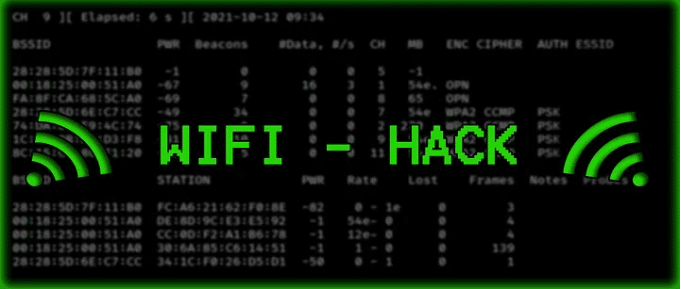
WiFi Password Hacking: Myths, Realities, and Security Measures
In the digital age, the concept of WiFi password hacking often stirs curiosity and concern. While the idea of effortlessly gaining access to a secure WiFi network might seem tempting, it’s essential to understand the myths, realities, and ethical implications surrounding this practice. This article delves into what WiFi password hacking entails, the risks involved, and how you can protect your network from unauthorized access.
Understanding WiFi Password Hacking
What is WiFi Password Hacking?
WiFi password hacking refers to the unauthorized attempt to access a wireless network by cracking its security password. This is typically done using various tools and techniques that exploit vulnerabilities in the network’s security protocols.
Common Methods Used for WiFi Hacking
- Brute Force Attack: This involves systematically trying every possible combination of characters until the correct password is found. While effective, it can be time-consuming and resource-intensive.
- Dictionary Attack: This method uses a pre-compiled list of common passwords and attempts each one until the correct password is discovered. It’s faster than brute force but only effective if the password is a commonly used one.
- Phishing: Cybercriminals trick users into revealing their WiFi passwords through deceptive emails or fake websites.
- Wi-Fi Protected Setup (WPS) Exploits: Some older routers have a WPS feature that can be exploited to gain access to the network. This method is less common with newer, more secure routers.
Legal and Ethical Considerations
Hacking into someone else’s WiFi network without permission is illegal and unethical. It can lead to severe legal consequences, including fines and imprisonment. Moreover, unauthorized access to a network can infringe on privacy and lead to data breaches.
The Risks of WiFi Password Hacking
Legal Consequences
Unauthorized access to a WiFi network is a criminal offense in many countries, including India. Penalties can include hefty fines and imprisonment, depending on the severity of the breach.
Security Threats
Hacking WiFi networks can expose both the hacker and the victim to various security threats:
- Data Theft: Accessing a network can lead to the theft of sensitive information such as personal data, financial details, and confidential communications.
- Malware Distribution: Hackers can use compromised networks to distribute malware, affecting all connected devices.
- Bandwidth Theft: Unauthorized users can consume bandwidth, slowing down the internet speed for legitimate users.
Protecting Your WiFi Network
Use Strong, Unique Passwords
Create a strong, unique password for your WiFi network. Avoid using common words or easily guessable information. Instead, use a mix of letters, numbers, and special characters.
Enable WPA3 Encryption
Ensure your router is using the latest WPA3 encryption standard, which offers stronger security than its predecessors, WPA2 and WEP.
Disable WPS
Turn off the Wi-Fi Protected Setup (WPS) feature on your router to prevent potential exploits.
Regularly Update Your Router Firmware
Keep your router’s firmware up to date to protect against known vulnerabilities and security threats.
Monitor Your Network
Regularly check the devices connected to your network and look for any unfamiliar or suspicious activity. Many routers provide a web interface or mobile app for monitoring and managing connected devices.
Use a Guest Network
Set up a separate guest network for visitors. This keeps your main network more secure and isolated from potential threats.
Conclusion
While the concept of WiFi password hacking might intrigue some, it’s crucial to understand the legal, ethical, and security implications involved. Unauthorized access to WiFi networks is illegal and can lead to severe consequences. Instead of attempting to hack networks, focus on securing your own WiFi connection by following best practices for password creation, encryption, and network management. Staying informed and proactive about network security can help protect your data and privacy in the digital age.




